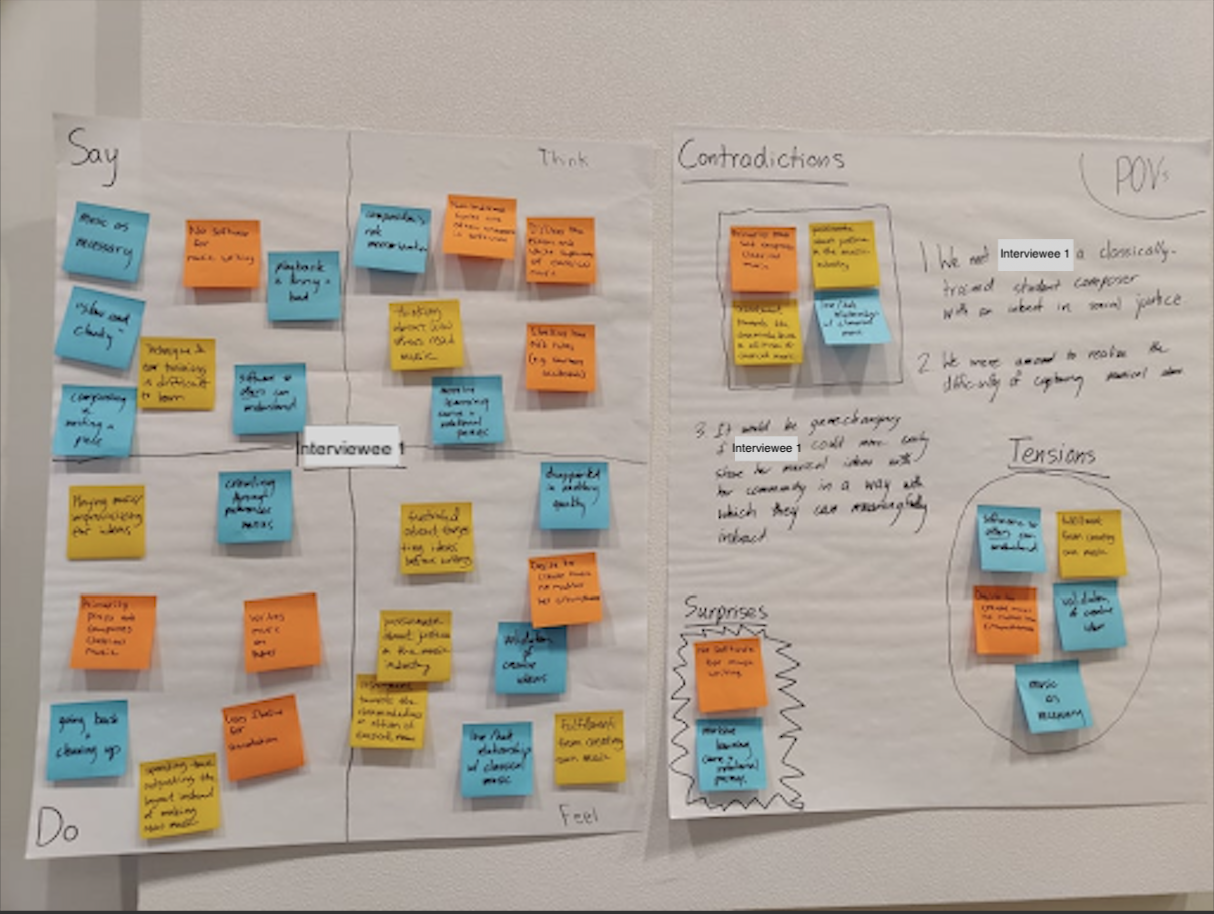Empathy Maps
Assignment 3
Executive Overview
This week, we conducted two more interviews to complement the three that we already had, so that we could gather more data. We also constructed empathy maps and POVs for several of our original interviewees.
Interviewee 4
[Sometimes I value] the social aspect [of music] more so than the making of music [itself].
Interviewee 5
[The most challenging part of the process is] making a song different enough from the original that it feels like my own.
Key Takeaways
Interviewee 4 has a lifelong commitment to music and composition in a variety of musical styles. They value the community formed by playing music together, gigs, etc. just as much if not more than the music itself, and they compose by switching back and forth between using Overture on their computer, and improvizing and refining on the piano.
Interviewee 5 discussed their process for arranging songs for a cappella groups using songs they love, adapting them based on a visual schematic and listening over-and-over, and eventually putting it all together on Noteflight, a free online notation software. They mentioned that their biggest challenge is making their versions of the songs different, unique, and not too busy, which is difficult since Noteflight can’t play back vocals with lyrics.
Empathy Map
This is our strongest empathy map of the two that we made, based off of Interviewee 1 from last week. We felt that this was our strongest empathy map because this interviewee had the most profound observations attached to the mostly deeply felt emotions, and we really felt that we could draw some solid conclusions, especially in the “think” and “feel” columns, here.
Some notable observations:
- There was a contradiction between the interviewee’s primary training and passion both being in classical music, and their simultaneous hatred for the elitism and racism that’s ingrained in classical music culture.
- There was a tension between the core desire to produce music being to create something that is beautiful and worthy of validation for themself, but the primary obstacle to this was the transcribing music so that others could understand.
- There was a surprise in the massive technical requirements that anyone using this software is expected to have, especially since composing is typically thought of as more of a creative profession than a technical one.

POV
This is our strongest POV, or Point of View, of the three that we made, based off of Interviewee 1 from last week. We chose to examine this POV further since it was so emotionally charged, and therefore we felt that if we could actually fulfil this gamechanger, we would truly make a difference in people’s lives.
We met [Interviewee 1], a classically trained student composer with an interest in social justice.
We were amazed to realize the difficulty of capturing musical ideas.
It would be game changing if [Interviewee 1] could more easily share her musical ideas with her community in a way in which they could meaningfully interact.
